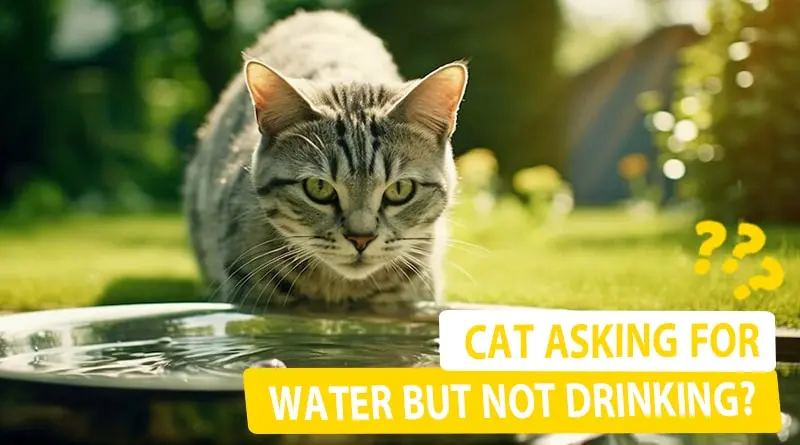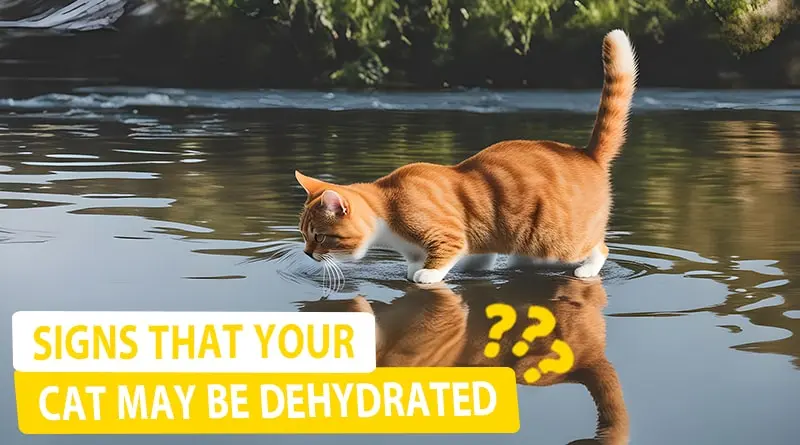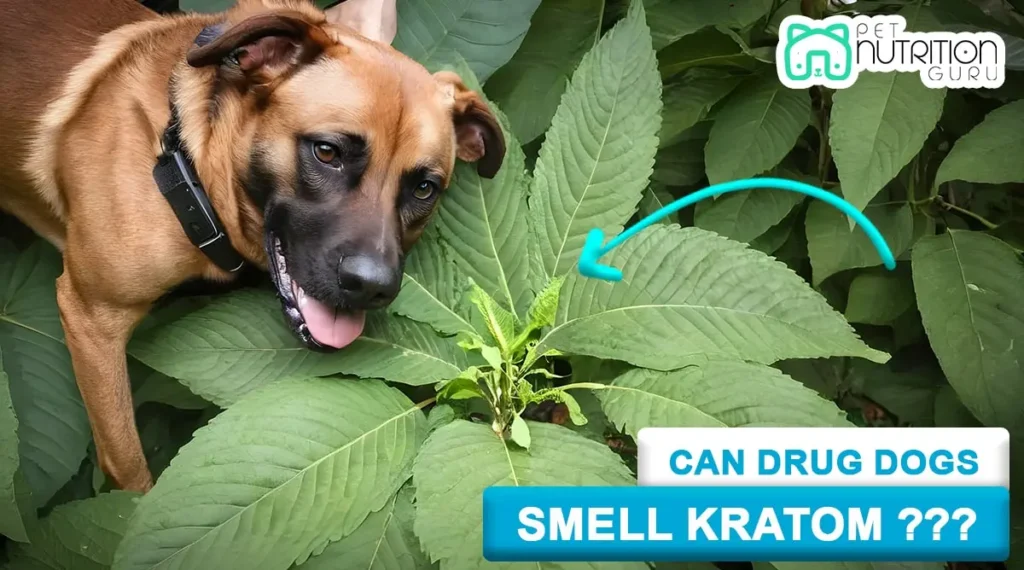If you’ve ever noticed your Cat staring intently at its water bowl without taking a sip, you’re not alone. This peculiar behavior can leave cat owners puzzled and concerned. Here is the true and short answer to Cat Looking at Water but Not Drinking:
Why is My Cat Looking at Water but Not Drinking?
“Cats might look at the Water but not drink it when dealing with a kidney or liver condition.”
Here is a whole Overview of this topic:
Possible Reasons Explanation
Prefers Moving Water Cats like fresh, flowing sources.
Temperature Sensitivity They may be picky about water temperature.
Unfamiliar Bowl or Location Changes can make them cautious.
Medical Issues Dental pain or discomfort may deter drinking.
Stress or Anxiety Changes or other pets can affect behavior.
Presence of Other Animals Dominant pets may make them wary.
Environmental Factors Noise or light can cause hesitation.
Underlying Health Conditions Issues like kidney disease can lead to increased thirst.
Medication Side Effects Some medications can change thirst levels.
Here is the Most Popular Question: “Is Cat Saliva Harmful to Humans?“
In this article (Cat Looking at Water but Not Drinking), we’ll delve into why your Cat might be exhibiting this curious conduct.
Why is My Cat asking for Water but not Drinking?

Cats have unique preferences when it comes to hydration. Some may display a keen interest in Water without actually drinking much.
This behavior can stem from various factors, including their instincts, health considerations, or environmental factors.
If your Cat is asking for Water but not drinking, there could be a few potential reasons:
- Medical Issues: Dental problems, mouth pain, or digestive issues can make drinking uncomfortable for a cat. They may approach the Water but not drink due to discomfort.
- Stress or Anxiety: Changes in the household, the introduction of a new pet, or other stressful situations can temporarily affect their behavior.
- Environmental Factors: Noise, light, or other environmental stimuli can sometimes make a cat apprehensive about approaching a water source.
- Water Bowl Cleanliness: Cats are sensitive to cleanliness. If the water bowl is dirty or has an unpleasant odor, your Cat might be hesitant to drink from it.
- Preference for Fresh Water: Cats often prefer fresh, flowing Water. They may show interest in the water source but not drink if it’s been sitting for a while.
How do you Hydrate a Cat that won’t Drink?
Encouraging your Cat to stay hydrated is crucial for their overall well-being. If your feline friend seems reluctant to drink, consider providing a clean and fresh water source, experimenting with different bowl types, or even offering a cat water fountain.
If your cat is not drinking enough Water, there are several strategies you can try to help them stay hydrated:
- Offer Wet Food: Wet cat food has a higher moisture content than dry kibble. This can help increase your Cat’s overall water intake.
- Flavored Water: Some cats may be enticed by adding a small amount of tuna juice or low-sodium chicken broth to their Water. Make sure any flavoring added is safe for cats.
- Provide Fresh Water: Ensure your Cat has access to clean, fresh water. Clean the water bowl regularly to prevent any buildup of dirt or bacteria.
- Use a Cat Water Fountain: Cats are often attracted to moving Water. A cat water fountain can mimic the flow of a stream and may encourage your Cat to drink more.
- Try Different Water Bowls: Some cats prefer the type of water bowl they drink from. Experiment with different materials (plastic, ceramic, stainless steel) and shapes to see if your Cat has a preference.
Here is the Most Popular Question: “Can Cats Eat Mochi?“
Why is My Cat Searching for Water?
Cats are instinctively drawn to water sources due to their ancestral hunting habits. In the wild, cats often locate prey near water bodies.
This behavior might carry over into a domestic setting, leading your Cat to investigate their water bowl even if they’re not thirsty.
If your Cat is actively searching for Water, it could be due to several reasons:
- Thirst
- Dehydration
- Change in Diet
- Dental Problems
- Stress or Anxiety
- Medication Side Effects
- Underlying Health Issues
- Preference for Moving Water
Signs That Your Cat May Be Dehydrated

It’s essential to be vigilant for signs of Dehydration in your Cat. These may include dry or sticky gums, lethargy, loss of skin elasticity, or dark yellow urine. Small head cats, due to their unique physiology, are more susceptible to dehydration than other cats.
Here are some common signs that your Cat may be dehydrated:
- Panting: While cats may pant in certain situations (such as after strenuous activity), excessive or unexplained panting can signify Dehydration.
- Constipation: Dehydration can lead to dry, hard stools, making it difficult for your Cat to pass waste.
- Loss of Appetite: A dehydrated cat may not have much appetite. This can lead to further complications if not addressed promptly.
- Elevated Heart Rate: Dehydration can cause an increase in heart rate as the body tries to compensate for the lack of fluids.
- Dry Mouth and Gums: Lift your Cat’s lip and check the gums. They should be pink and moist. If they appear dry or sticky, it’s a sign of Dehydration.
- Loss of Skin Elasticity: Gently pinch a bit of skin on the back of your Cat’s neck. In a well-hydrated cat, the skin should snap back into place immediately. If it returns slowly or forms a “tent,” this is a sign of Dehydration.
- Vomiting and Diarrhea: These symptoms can lead to rapid fluid loss, which can quickly lead to Dehydration.
If you suspect your Cat is dehydrated, taking action promptly is essential.
Encourage your Cat to drink Water, and if they’re not showing interest, consider providing them with a water bowl that encourages Drinking, such as a cat water fountain.
Here is the Most Popular Question: “How Much Chicken to Feed a Cat per Day?“
Severe Health Conditions Linked To Dehydration in Cats
- Dehydration is a severe health risk for cats.
- Signs of dehydration, such as fur loss, excessive panting, and lethargy, can indicate that it is present.
- Dehydration can lead to additional severe health conditions in cats, such as urinary tract infections, gum disease, and kidney failure.
- Ensuring cats get enough fluids throughout the day to prevent potential dehydration-related health issues is essential.
Why Do Cats Lay Next To Water Bowls?
A cat lounging beside their water bowl may be enjoying a comfortable spot. However, this behavior persists or is accompanied by other concerning signs.
In that case, seeking professional advice from your vet is advisable.Cats may choose to lay next to their water bowls for a few reasons:
- Stress Reduction
- Routine and Habit
- Preference for the Area
- Observation and Safety
- Comfort and Familiarity
- Temperature Regulation
Why Does My Cat Stare At Water?
Cats are naturally curious creatures. Staring at Water may be a form of feline entertainment or a way to assess the safety of their water source. It’s usually not a cause for concern.
Cats may stare at Water for a few different reasons:
- Thirst
- Curiosity
- Entertainment
- Hunting Instinct
- Instinctual Behavior
- Environmental Stimuli
- Associations with Play
- Preference for Moving Water
Why Is My Cat Hovering Over Water Bowl?
If your cat hovers over the water bowl but doesn’t drink, it could be due to a preference for running Water.
Consider investing in a cat water fountain, which mimics the flow of fresh water and may be more appealing to your feline companion.
Potential Reasons for Cat's Behavior Explanation
Thirst Sign they need water.
Prefers Fresh Water Likes flowing, clean water.
Temperature Sensitivity Particular about water temperature.
Unfamiliar Bowl/Location Changes can make them cautious.
Dental Issues Discomfort may deter drinking.
Stress/Anxiety Changes or other pets can affect behavior
Here is the More Popular Question: “Do Cats Get Depressed after Abortion?“
What does it mean when a Cat doesn’t Drink Water?
A cat’s water intake can fluctuate based on diet, activity level, and individual preferences.
However, if you’re concerned about prolonged water aversion, consult your vet to rule out any underlying health issues.
There could be several reasons why a cat is not drinking Water:
- Health Issues
- Stress or Anxiety
- Environmental Factors
- Dirty or Unpleasant Water
- Preference for Running Water
What Does It Mean When A Cat Doesn’t Want To Drink Water?
Occasional water avoidance is usually not a cause for alarm. However, if your Cat consistently avoids drinking for an extended period, seeking professional guidance is best.
Here are some common reasons why a cat might not want to drink Water:
- Stress or Anxiety: Changes in their environment, the presence of new people or pets, or other stressful situations can affect a cat’s behavior, including their drinking habits.
- Medical Conditions: Certain conditions like urinary tract infections, kidney disease, or diabetes can lead to increased thirst or changes in drinking behavior.
Here is the More Popular Question: “Best Cat Diet Plan for Weight Loss in 2023“
Conclusion
Understanding your Cat’s behavior around Water is essential to responsible pet ownership.
While occasional curiosity is normal, any drastic changes in behavior should prompt a visit to your veterinarian.
Keeping a watchful eye on your Cat’s water consumption can contribute to their overall health and well-being.
Disclaimer
This Article (Cat Looking at Water but Not Drinking) contains essential information. We are not a veterinarian but we have pet Cat dietary professionals. If your Cat discloses any indication of ailment, call your veterinarian.
Bear in mind that every Cat is Different, and if you have any worries regarding your feline’s health or practices, do not wait to seek specialist recommendations from your veterinarian.
If you want more Knowledge about Pet Nutrition, visit our Blog Section.
FAQs (Frequently Asked Questions)
Use a syringe or pet water dispenser with small amounts, but consult your vet for guidance.
Look for dry gums, sunken eyes, lethargy, and reduced urination, and consult a vet if concerned.
Recovery time varies by severity; follow your vet’s advice for the best outcome.
Latest Articles
- Can Dogs Eat Soursop Fruit? Find Out the Truth Here
- Can Drug Dogs Smell Kratom? The Shocking Truth Revealed
- When Do Dogs Go into Heat after Having Puppies?
Subscribe to Pet Nutrition Guru
Subscribe below to receive expert pet care advice, pet wellness tips, and exclusive promotions.




